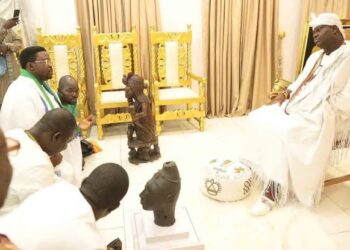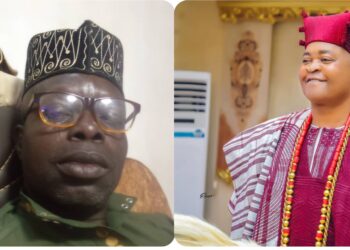
In recent times, the selection of Yoruba kings, especially among the diaspora, has sparked debates and raised concerns about the role of the Ifa Oracle in choosing traditional rulers.
Notable kings such as the Ooni of Ife (USA), Oluwo of Iwo (Canada), Soun of Ogbomosho (USA), Owa Obokun of Ijesha (USA), New Alaafin of Oyo (Canada), Elerin of Erin-Ile (USA), and Aseyin of Iseyin (USA) have all reportedly been crowned outside the shores of Nigeria.
This growing trend has sparked discussions on social media about whether the process of selecting Yoruba kings is drifting away from its traditional roots. The debate also raises questions about whether these kings had previously lived in the countries they are associated with, or whether they had lived in Lagos while only visiting the countries in question before being crowned and later relocating to their respective domains.
In his recent hit song, Afrobeat sensation Qdot, expressed his views, saying, “Ifa tofi talaka joba, enu Ifa gan magbe” (meaning “Ifa does not make the poor kings, but those with wealth speak for Ifa”). The lyrics have resonated with critics who argue that the modern-day crowning of kings, particularly in foreign countries, is becoming more of a business arrangement than a spiritual decision guided by the Ifa Oracle.
Some Nigerians are questioning why Ifa is no longer considered the sole authority in the selection of local kings, with a growing perception that wealth and connections are now playing a bigger role in the process. The rising trend of crowning kings in the diaspora has left many wondering if traditional values are being compromised in the face of global influence.
This shift has sparked an important conversation about the future of Yoruba traditions, and whether the sacred process of kingship should remain untouched or evolve with the changing times.

















